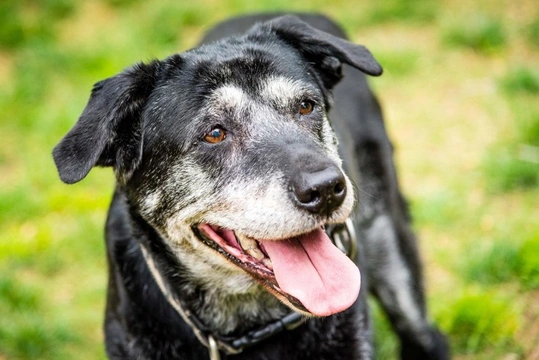
Colon cancer in dogs
Colon cancer is one of the most severe forms of cancer that can affect dogs, and unfortunately there it usually proves fatal, meaning that a diagnosis generally has a poor prognosis for the affected dog. However, there are various methods of palliative care that can help to extend an affected dog’s viable lifespan, keep them comfortable and improve their quality of life, and early diagnosis and intervention is essential in order to make the best of such options.
Hearing from your vet that your dog has colon cancer or that this is a potential diagnosis that they are considering will of course be very distressing, given the seriousness of the condition-and your vet will of course talk you through what it means for your dog, and what they can do for them.
However, it can of course be hard to take in information such as this when you are reeling from the diagnosis or potential thought of such a serious form of cancer, and you will no doubt have a lot of questions about the condition that you may not think of until you have left the clinic.
In this article, we will provide a brief explanation of colon cancer in dogs, including the different types of colon cancer that can affect dogs, how to spot potential symptoms, and what options may be available to you for care and management.
What is the function of the colon?
The colon is the same thing as the large intestine, and your vet may use either term, or use the two terms interchangeably when talking about your dog.
The colon is a vital part of the dog’s digestive system, and is responsible for processing fibrous material that the dog did not digest in their stomach or small intestine on the journey out of the body.
When fibrous material enters the colon, any water that the body can make use of will be absorbed back into the body, and what is left will be further broken down for absorption via the walls of the colon. The remaining fibrous substance that the body cannot digest will be passed through the bowels as waste in the normal manner.
Different types of colon cancer in dogs
There are two main forms of colon cancer that can affect dogs; Lymphosarcoma, which affects the gastrointestinal system’s lymph nodes, and adenocarcinoma, which leads to the growth of one or more tumours in the body’s apocrine glands, which lie parallel to each other on the rectum.
While both forms of colon cancer are serious and often cause systemic problems due to the fact that they affect the glands and the lymphatic system respectively, the treatment and management options for each form of cancer can be variable depending on how advanced it is, the problems it is causing, and the effect that it has on your dog.
However, the symptoms that colon cancer are apt to display in your dog tend to be similar for both types of cancer, and this is what we will look at next.
The symptoms of colon cancer in dogs
Canine colon cancer symptoms can be varied in nature, and present differently in each dog. Additionally, most of the symptoms are also common to various other problems that can affect the dog’s colon, including colitis and irritable bowel syndrome.
It is important not to panic if you spot potentially worrying symptoms of the types outlined below, because a diagnosis of something less serious is much more likely. However, because of the severity of colon cancer, being vigilant about symptoms and having your vet check your dog out at the first signs that something is amiss is important.
Some of the potential symptoms of colon cancer in dogs are as follows:
- Chronic or frequent bouts of constipation, with the dog taking a long time to pass stools and straining and potentially, showing signs of pain when having a bowel movement.
- The presence of blood in the stools, potentially accompanied by mucous.
- Increased thirst and so, an increased need to urinate frequently.
- Loss of condition and weight for no obvious reason, particularly if the dog is eating normally. This may occur because the colon is unable to process all of the nutrients that the body needs effectively.
- A range of more general or systemic symptoms may present as well, including changes in the dog’s behaviour and temperament, lethargy and listlessness, and becoming rather more grumpy than normal.
- Other systemic changes may include losing the fur or generally flat and unhealthy-looking fur, a muscle weakness and degeneration.
In order to formally diagnose or rule out colon cancer in your dog, your vet will need to perform a range of tests as well as taking into account your dog’s history, and a thorough physical examination.
As mentioned, colitis, IBS and other less serious conditions will need to be ruled out-but even if your dog has suffered from these problems before, your vet will need to remain vigilant as such illnesses can increase the risk factors for colon cancer.
X-rays, blood panels and urinalysis will all be used as part of diagnosis, and your vet is also likely to perform a colonoscopy and potentially, biopsy to get a firm result.
What can be done for a dog with colon cancer?
By the time colon cancer has been diagnosed, it is generally too late to make a meaningful attempt to eradicate the cancer, although in some situations your vet may take this approach by means of surgery, chemotherapy, radiotherapy, or a combined approach.
Such methods may also be used to attempt to reduce the size and severity of the cancer, and lessen the effect that it has on your dog-and so, potentially extend their life and reduce the pain and symptoms that can accompany the condition.



